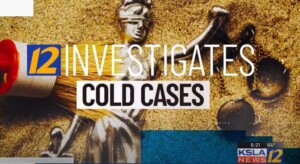Why Broadcast Still Wins With Viewers
 What broadcast networks do particularly well is build nights of television with audience flow. This is why, despite the appearance of a few bright spots in cable television, viewers are not congregating and staying with cable content throughout a night in the same way they do with broadcast. There is content there, but collectively, it’s not much of a draw. It takes more than a handful of original shows to create a destination for viewers.
What broadcast networks do particularly well is build nights of television with audience flow. This is why, despite the appearance of a few bright spots in cable television, viewers are not congregating and staying with cable content throughout a night in the same way they do with broadcast. There is content there, but collectively, it’s not much of a draw. It takes more than a handful of original shows to create a destination for viewers.
Aereo Is A Winner In My Book And Here’s Why
 Broadcasters aren’t going to like hearing this, but in the short amount of time I’ve served as an Aereo beta tester in Denver, I’ve been very impressed by the controversial streaming service. Image quality is great, the cloud DVR is more useful than I thought and I get access to 26 channels from anywhere in the Denver area with an Internet connection.
Broadcasters aren’t going to like hearing this, but in the short amount of time I’ve served as an Aereo beta tester in Denver, I’ve been very impressed by the controversial streaming service. Image quality is great, the cloud DVR is more useful than I thought and I get access to 26 channels from anywhere in the Denver area with an Internet connection.
Apple TV Could Provide Local News Platform
 Apple is rumored to update its Apple TV set-top box at a media event tomorrow. If it does, broadcasters should hope for an open SDK to let developers create apps for the platform. A TV version of the App Store could give local broadcasters a new channel in the over-the-top ecosystem that lets viewers catch up on news from the day and watch live newscasts.
Apple is rumored to update its Apple TV set-top box at a media event tomorrow. If it does, broadcasters should hope for an open SDK to let developers create apps for the platform. A TV version of the App Store could give local broadcasters a new channel in the over-the-top ecosystem that lets viewers catch up on news from the day and watch live newscasts.
Ranking Television’s Hierarchy Of Needs
 As an industry, we frequently talk about the complexity of today’s television ecosystem. Nearly every aspect of television is complicated. Multiple screens and thousands of content options have complicated the “what” and the “where.” Behavioral targeting has complicated the “who” of viewing. Nothing is simple. So knowing that, why don’t we try to scale things back and just look at TV not from the perspective of an industry, but from an audience? Let’s go back to the basics of television.
As an industry, we frequently talk about the complexity of today’s television ecosystem. Nearly every aspect of television is complicated. Multiple screens and thousands of content options have complicated the “what” and the “where.” Behavioral targeting has complicated the “who” of viewing. Nothing is simple. So knowing that, why don’t we try to scale things back and just look at TV not from the perspective of an industry, but from an audience? Let’s go back to the basics of television.
There Is No ‘Golden Age of Television’
 I don’t know about you, but I’m pretty sick of hearing about the current “Golden Age of Television.” Like many other cultural tropes, the concept contains an element of truth, but the sheer repetition of the phrase has started to sound self-congratulatory, as if we were geniuses for choosing to live through such an epic era.
I don’t know about you, but I’m pretty sick of hearing about the current “Golden Age of Television.” Like many other cultural tropes, the concept contains an element of truth, but the sheer repetition of the phrase has started to sound self-congratulatory, as if we were geniuses for choosing to live through such an epic era.
Big Events When Television Is Not Yet History
 It is the touchstone, large-scale, society-rocking events — the Boston Marathon Bombing, Hurricane Sandy, the tragedy in Newtown, Conn., or even the most potent of all, 9/11 — coverage of each that are all hallmarks of local broadcast television, that are each further reminders that television is indeed where we are engaged, informed and united.
It is the touchstone, large-scale, society-rocking events — the Boston Marathon Bombing, Hurricane Sandy, the tragedy in Newtown, Conn., or even the most potent of all, 9/11 — coverage of each that are all hallmarks of local broadcast television, that are each further reminders that television is indeed where we are engaged, informed and united.
What Papers Must Do To Do Video Right
 With video becoming a bigger part of newspapers’ online offerings, the industry needs to learn to work with people from the TV world to create, sustain and survive a multiplatform media environment. “Without people on both sides of the fence working together to disrupt a business that needs an infusion of new media, the print world will continue to struggle with what it is and what it’s going to be,” says J.R. Mahon.
With video becoming a bigger part of newspapers’ online offerings, the industry needs to learn to work with people from the TV world to create, sustain and survive a multiplatform media environment. “Without people on both sides of the fence working together to disrupt a business that needs an infusion of new media, the print world will continue to struggle with what it is and what it’s going to be,” says J.R. Mahon.
Defining ‘Journalist’ Is A Slippery Slope
 Last week, a bipartisan majority on the House Judiciary Committee approved House Bill 4770, which seeks to define the word “journalist.” The goal is to distinguish between those who should see accident records immediately (vehicle owners, prosecutors, journalists, etc.) and those who shouldn’t (the vulture-lawyers). This comes dangerously close to the licensing of reporters, is is a rotten idea, and liberal societies like our own abandoned it long ago.
Last week, a bipartisan majority on the House Judiciary Committee approved House Bill 4770, which seeks to define the word “journalist.” The goal is to distinguish between those who should see accident records immediately (vehicle owners, prosecutors, journalists, etc.) and those who shouldn’t (the vulture-lawyers). This comes dangerously close to the licensing of reporters, is is a rotten idea, and liberal societies like our own abandoned it long ago.
Memo To Networks: Don’t Leave Us Hanging
 It’s never fun to wake up one morning and hear that a beloved TV series has been canceled. But there’s something especially appalling about a show being axed when the current season of that show has just ended on a cliffhanger. When shows are canceled, fans who have welcomed the show’s characters into their lives are simply kicked to the curb along with the show. It’s insulting, so let’s fix the problem with a “Plus 2” rule.
It’s never fun to wake up one morning and hear that a beloved TV series has been canceled. But there’s something especially appalling about a show being axed when the current season of that show has just ended on a cliffhanger. When shows are canceled, fans who have welcomed the show’s characters into their lives are simply kicked to the curb along with the show. It’s insulting, so let’s fix the problem with a “Plus 2” rule.
Should It Be Retransigent Instead Of Retrans?
 The unavoidable truth is that the rare retrans disruption doesn’t occur because the parties didn’t begin negotiating early enough to get a deal done; it occurs because the parties can’t agree on price and won’t change their views on pricing until the pressures of a retrans disruption are upon them. In the end, private contractual negotiations are about agreeing on the value of an item to be conveyed, and if the parties can’t agree on that, a transaction doesn’t happen. All the king’s horses and all the king’s men can’t change that. To think otherwise is merely to be retransigent.
The unavoidable truth is that the rare retrans disruption doesn’t occur because the parties didn’t begin negotiating early enough to get a deal done; it occurs because the parties can’t agree on price and won’t change their views on pricing until the pressures of a retrans disruption are upon them. In the end, private contractual negotiations are about agreeing on the value of an item to be conveyed, and if the parties can’t agree on that, a transaction doesn’t happen. All the king’s horses and all the king’s men can’t change that. To think otherwise is merely to be retransigent.
4 Tips To Help Journalists Create More Videos
 Matt Singer, CEO of Videolicious, a platform for journalists to create editorial videos using their smartphones, offers four tips for journalists working with video: work with what you have, limit the amount of footage you shoot, edit while shooting and don’t replace your article.
Matt Singer, CEO of Videolicious, a platform for journalists to create editorial videos using their smartphones, offers four tips for journalists working with video: work with what you have, limit the amount of footage you shoot, edit while shooting and don’t replace your article.
Looking Toward Journalism’s Radical Future
 Hank Price, GM of WXII Winston-Salem, N.C.: “Who is in the best position to create this radical future of journalism? Who will create tomorrow’s “trusted choice?” Will it be major newspapers and leading television stations or two kids in a garage? The answer to that question is up to you and me. Either way, we will get what we deserve.”
Hank Price, GM of WXII Winston-Salem, N.C.: “Who is in the best position to create this radical future of journalism? Who will create tomorrow’s “trusted choice?” Will it be major newspapers and leading television stations or two kids in a garage? The answer to that question is up to you and me. Either way, we will get what we deserve.”
Embracing Imperfect In Impact Measurement
Kevin Davis, CEO and executive director of the Investigative News Network, says that before a system of standard metrics to measure journalism’s impact can be developed, there first needs to be a clear understanding of who will be using the metrics and for what purposes. “Regardless of what metrics are developed and agreed upon, adopting repeatable methodologies and standards that can be measured objectively over time will be essential in gauging not only the impact of the organization today, but also its growth,” he says.
Why Newsrooms Need ‘Digital People’
John Kroll: “Digitally native editors will respond to readers in the comments. They will take part in Q&As of whatever format, online or in person. They will find ways to reach out to the community beyond the bigwigs they meet at charity galas or in corporate boardrooms.”
How Publishers Should Forge Video Strategy
 When building a video strategy, the most important question publishers should ask themselves is, “Who are we trying to reach?” Ballantine Communications CEO Doug Bennett: “If the answer is a new audience such as a younger demographic, then the process of producing video must begin with collecting and reviewing data that supports the interests of this audience.”
When building a video strategy, the most important question publishers should ask themselves is, “Who are we trying to reach?” Ballantine Communications CEO Doug Bennett: “If the answer is a new audience such as a younger demographic, then the process of producing video must begin with collecting and reviewing data that supports the interests of this audience.”
TV Is Cheating New Jersey Viewers
 New Jersey’s news sources are disappearing. And there is little of substance coming to replace them. It is time for the rest of New Jersey and its elected officials to speak out. Let us demand that the FCC act to provide us with the news and public affairs programming we deserve.
New Jersey’s news sources are disappearing. And there is little of substance coming to replace them. It is time for the rest of New Jersey and its elected officials to speak out. Let us demand that the FCC act to provide us with the news and public affairs programming we deserve.
The Many Internet-Video Options For TVs
Watching TV shows, movies and other video via the Internet on your big-screen television has become all the rage. But the proliferation of devices and methods for doing so has made the whole thing mighty confusing. To help sort out the choices, Walt Mossberg has compiled a primer for watching Internet video on a TV, legally.
Papers Should Watch How TV Reacts To Web
Television finally seems to be feeling the Internet’s pinch. Newspapers should closely watch how the TV industry reacts. Anne Crassweller: “All media companies are facing challenges about how their content is being consumed and how to build new business models…. Providing value and habits will bring audiences and success.”
Local Media Can Level Trust In DMS Space
 Social and mobile media can be lovable and annoying, and it’s the annoying part that holds the most opportunity, says Borrell Associates CEO Gordon Borrell. Methods of how to capitalize on social and mobile will be laid out the firm’s Social+Mobile Show Me The Money conference this month.
Social and mobile media can be lovable and annoying, and it’s the annoying part that holds the most opportunity, says Borrell Associates CEO Gordon Borrell. Methods of how to capitalize on social and mobile will be laid out the firm’s Social+Mobile Show Me The Money conference this month.
End Of Daytime Drama (Not What You Think)
 Ah, as the world turns. It’s time to come clean on soaps. And the news is…good. Soaps are back. Well, perhaps it’s more accurate to say that soaps are steady. And that’s something that couldn’t be said just a couple of years ago. The genre still thrives elsewhere, especially in network primetime. For a genre that’s all been written off as a relic, it’s showing that it might just have one life to live after all.
Ah, as the world turns. It’s time to come clean on soaps. And the news is…good. Soaps are back. Well, perhaps it’s more accurate to say that soaps are steady. And that’s something that couldn’t be said just a couple of years ago. The genre still thrives elsewhere, especially in network primetime. For a genre that’s all been written off as a relic, it’s showing that it might just have one life to live after all.
TWC-CBS Feud Underscores Need For Reform
 Television is a public good. We forget that sometimes, but it’s true. But you wouldn’t know it based on the spectacle created by CBS and Time Warner Cable duking it out for billions of dollars and blacking out signals to millions of households in New York, Los Angeles, Dallas and other markets across the country. But the bigger issue is the system and the antiquated laws that govern it. Congress needs to reform the rules of the game so that consumers’ interests come first.
Television is a public good. We forget that sometimes, but it’s true. But you wouldn’t know it based on the spectacle created by CBS and Time Warner Cable duking it out for billions of dollars and blacking out signals to millions of households in New York, Los Angeles, Dallas and other markets across the country. But the bigger issue is the system and the antiquated laws that govern it. Congress needs to reform the rules of the game so that consumers’ interests come first.
Local Television Is A Smart Business Bet
The pace of consolidation in local TV is accelerating. Why? Simply put, the future looks promising for this healthy sector. The major reasons behind the bright outlook of the local television landscape are threefold.
Twitter: A Home For Broadcast Tech Pros?
 My challenge to the engineers who are helping broadcast countless hours of live news each week: Sign up and tweet at least one message a day. Let this community know how your latest ENG gizmo is working out for you. Maybe you just bought some new specialty, point-of-view cameras that you want to tell us about. Let us know that your innovative minds are still churning out new ideas.
My challenge to the engineers who are helping broadcast countless hours of live news each week: Sign up and tweet at least one message a day. Let this community know how your latest ENG gizmo is working out for you. Maybe you just bought some new specialty, point-of-view cameras that you want to tell us about. Let us know that your innovative minds are still churning out new ideas.
Five Things You Need To Know About Sinclair
 You have to admire the financial muscle, if nothing else, of Baltimore’s Sinclair Broadcast Group. How many companies in Baltimore can pony up just under a billion dollars and become headquarters to a high-visibility Washington media institution like WJLA, the ABC affiliate in the nation’s capital? Here are five things I consider worth thinking about as Sinclair moves up into bigger journalistic and political leagues with this deal. They are based on two decades of watching Sinclair operate.
You have to admire the financial muscle, if nothing else, of Baltimore’s Sinclair Broadcast Group. How many companies in Baltimore can pony up just under a billion dollars and become headquarters to a high-visibility Washington media institution like WJLA, the ABC affiliate in the nation’s capital? Here are five things I consider worth thinking about as Sinclair moves up into bigger journalistic and political leagues with this deal. They are based on two decades of watching Sinclair operate.
How Much TV Should Advertisers Really Buy?
The Big Four broadcast networks’ primetime programming still gets the highest TV ratings, and with them the highest advertising prices. So it’s no surprise to see advertisers and their agencies steadily adding cheaper alternatives, like primetime cable, and decreasing their share of dollars spent with broadcasters. But an increasing amount of evidence suggests that not every rating point is created equal.
There’s No Battle Between TV And YouTube
 Thinkbox’s Lindsey Clay says that the emotional connection people enjoy with TV makes the so-called battle between TV and YouTube a false one.
Thinkbox’s Lindsey Clay says that the emotional connection people enjoy with TV makes the so-called battle between TV and YouTube a false one.
What KTVU Did Right After Its Slip-Up
 It was great sport all last weekend for media critics to excoriate KTVU-TV in San Francisco for its announcement of fake, offensive pilot names in the Asiana Airlines crash. There’s no denying KTVU made a big mistake. But when admitting to its mistakes, the station took an approach that other journalists should replicate.
It was great sport all last weekend for media critics to excoriate KTVU-TV in San Francisco for its announcement of fake, offensive pilot names in the Asiana Airlines crash. There’s no denying KTVU made a big mistake. But when admitting to its mistakes, the station took an approach that other journalists should replicate.
The Red, White & Blue Of Heroes Never Fades
 There was an entire generation of American heroes who were left ignored and unhonored as they came home from a war when our veterans weren’t as readily revered. The heroes of the Vietnam War came home to a much different political reality than exists now. The North Carolina Association of Broadcasters made sure that the Vietnam veterans finally heard those cheers that had so long been delayed.
There was an entire generation of American heroes who were left ignored and unhonored as they came home from a war when our veterans weren’t as readily revered. The heroes of the Vietnam War came home to a much different political reality than exists now. The North Carolina Association of Broadcasters made sure that the Vietnam veterans finally heard those cheers that had so long been delayed.
The Power Of Local TV, Especially In Disasters
The power of local TV is in its localness — its ability to connect and unite communities. The best example of this is the reaction of TV viewers to traumatic events. Local TV news is still the dominant place to which the public turns in times of crisis.
A Shield Law Is Essential To A Robust Press
 Rep. John Conyers (D-Mich.) and Rep. Ted Poe (R-Texas) on the creation of a federal press shield law: “Freedom of the press is enshrined in the First Amendment as a foundational freedom upon which our other freedoms — including speech and privacy — are premised. An unfettered press can inform the public about government abuses that threaten our citizens’ rights. This is not a conservative or liberal principle. It’s an American principle.”
Rep. John Conyers (D-Mich.) and Rep. Ted Poe (R-Texas) on the creation of a federal press shield law: “Freedom of the press is enshrined in the First Amendment as a foundational freedom upon which our other freedoms — including speech and privacy — are premised. An unfettered press can inform the public about government abuses that threaten our citizens’ rights. This is not a conservative or liberal principle. It’s an American principle.”
Ad-ID Can Fix Video Asset Tracking
George Musi: “A few months ago, the ad industry had a wakeup call. The SAG-AFTRA and the ANA-4A’s Joint Policy Committee released a mandate for universal adoption of Ad-ID — a critical step forward for the advertising industry in advancing standards across all platforms for identification, tracking and measurement. The advertising ecosystem needs to coalesce around common methodologies. Ad-ID should be implemented by March 31, 2014.”
Want Better News? Block Gannett-Belo Deal
 Free Press President Craig Aaron: “The FCC needs to end this charade. If the agency’s rules don’t allow mergers between these stations, then de facto mergers shouldn’t be allowed either. If that means breaking up a few big media companies along the way and stopping this deal, so be it.”
Free Press President Craig Aaron: “The FCC needs to end this charade. If the agency’s rules don’t allow mergers between these stations, then de facto mergers shouldn’t be allowed either. If that means breaking up a few big media companies along the way and stopping this deal, so be it.”
News Media Must Adapt To Rebuild Trust

Broadcast Nets Think Inside The Box
Network executives take a ‘What me worry?’ approach despite their medium’s changing landscape. Having consumed roughly two dozen network pilots slotted for the fall, one overarching attribute appears to be how much the current crop of shows resembles the last one, and the one before that.
Why Broadcasters Should Take TV Online
 Rather than fighting cord-cutting and unbundling and making a weak effort with TV Everywhere, the top brass should be looking at putting their full broadcast TV channels online — with no restrictions. Not only does the data show that huge audiences are streaming video online, the broadcast channels are missing a unique chance to use their live channels on the internet to take their business to the next level. Here are three game-changing benefits TV content producers and broadcasters could realize by finally putting live channels online:
Rather than fighting cord-cutting and unbundling and making a weak effort with TV Everywhere, the top brass should be looking at putting their full broadcast TV channels online — with no restrictions. Not only does the data show that huge audiences are streaming video online, the broadcast channels are missing a unique chance to use their live channels on the internet to take their business to the next level. Here are three game-changing benefits TV content producers and broadcasters could realize by finally putting live channels online:
Why Ad Cash Is Shifting To Web Promotions
Gordon Borrell: “The money being plowed into promotions isn’t entirely coming from trimmed-down advertising budgets. It’s also coming from things like slimmer profit margins (taken through steeper discounting), the salaries of former workers who used to handle marketing tasks, and from agency fees, printing budgets and postage.”
Nonprofit News Dodges Business At Its Peril
 The Pew Research Center’s recent report on the health of nonprofit newsrooms says that many of those organizations are finding it “hard to make time for business activities.” But those that don’t will soon disappear. Investigative News Network’s Kevin Davis: “Any nonprofit news organization that doesn’t have dedicated resources in business and revenue generation will simply not survive the next few years, let alone achieve the holy grail of nonprofit businesses: sustainability.”
The Pew Research Center’s recent report on the health of nonprofit newsrooms says that many of those organizations are finding it “hard to make time for business activities.” But those that don’t will soon disappear. Investigative News Network’s Kevin Davis: “Any nonprofit news organization that doesn’t have dedicated resources in business and revenue generation will simply not survive the next few years, let alone achieve the holy grail of nonprofit businesses: sustainability.”
2012-13 Season: The More Things Change…
 When you look at the results of the past television season, you might just find something interesting. It looks very much like last year. And the year before that, and the year before that, and before that and so on. Over 90% of the top 200 adults 25-54 primetime programs airing during this season were on broadcast.
When you look at the results of the past television season, you might just find something interesting. It looks very much like last year. And the year before that, and the year before that, and before that and so on. Over 90% of the top 200 adults 25-54 primetime programs airing during this season were on broadcast.
Why A Shield Law Can’t Save Journalists
 The only way journalists will be protected is if prosecutors stop being so quick to go after them.
The only way journalists will be protected is if prosecutors stop being so quick to go after them.


































